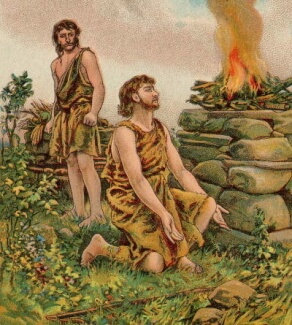 Sure, I love my neighbor. But I really love his new car. The guy I work with? I love him, too … but what I really would love to have is his bank account.
Sure, I love my neighbor. But I really love his new car. The guy I work with? I love him, too … but what I really would love to have is his bank account.
Why does everyone have a better phone than mine? I wish I had a job that paid as much as my brother’s. Look at the girl who just won all that praise … what an ego!
Envy, one of the seven deadly sins, can be a dangerous thing.
As we see in today’s first reading from Genesis, Chapter 4, it’s also been around for a long, long time. It’s the story of Cain killing his brother Abel out of rage driven by envy. Abel’s only crime? His sacrifice to God was better than Cain’s.
Who among us has not felt this way? If we are honest, we will admit that as much as we try to be happy with ourselves and our situation in life, we are also keenly aware of others who are doing better.
It’s sad, but common, especially in a society where everyone is focused on making more money, having more things and using each other for personal pleasure. We envy their toys, their money, their status in life.
Cain had envy of his brother’s abilities to please God. Imagine harboring hatred in your heart because the person in the next pew stuffs more dollar bills in the basket than you.
Rather than rejoice in the virtuous and selfless display of giving, we choose to cast judgment, whisper unflattering gossip and rejoice when someone rich and famous makes a mistake and is “knocked off their high horse.”
Why do we take pleasure in such pain? What can we to do to stop?
The only way to temper our destructive feelings of envy is to remember that we are called to simply love our neighbors … and our co-workers, our bosses and our politicians … our loved ones and our enemies.
Think of it this way. If your own child grows into a successful adult with a good job that pays better than what you ever earned, do you respond with anger? Or do you celebrate the good fortune?
In most cases, I would hope, loving parents would never envy their child’s success.
So perhaps we need to love our neighbors as if they are our own brothers, sisters, children.
Better yet, we could strive to love them the way Jesus loves us … unconditionally and with a willingness to die for us.
If we can get to that point, willing to love everyone – especially those we envy – then perhaps, with God’s grace, we will no longer envy them.
Genesis tells us that Abel’s blood “cries out to (God) from the soil.”
If we listen to our own troubled hearts, we can still hear those cries.
